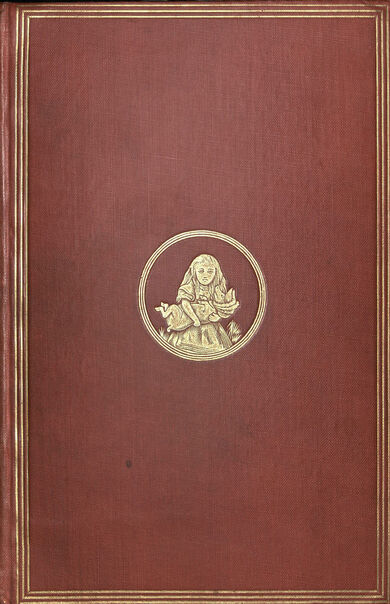Fit the Second ( Hunting of the Snark )
The Bellman’s Speech
The Bellman himself they all praised to the skies—
Such a carriage, such ease and such grace!
Such solemnity, too! One could see he was wise,
The moment one looked in his face!
He had bought a large map representing the sea,
Without the least vestige of land:
And the crew were much pleased when they found it to be
A map they could all understand.
“What’s the good of Mercator’s North Poles and Equators,
Tropics, Zones, and Meridian Lines?”
So the Bellman would cry: and the crew would reply
“They are merely conventional signs!
”Other maps are such shapes, with their islands and capes!
But we’ve got our brave Captain to thank”
(So the crew would protest) “that he’s bought us the best—
A perfect and absolute blank!”
This was charming, no doubt: but they shortly found out
That the Captain they trusted so well
Had only one notion for crossing the ocean
And that was to tingle his bell.
He was thoughtful and grave—but the orders he gave
Were enough to bewilder a crew.
When he cried “Steer to starboard, but keep her head larboard!”
What on earth was the helmsman to do?
Then the bowsprit got mixed with the rudder sometimes:
A thing, as the Bellman remarked,
That frequently happens in tropical climes,
When a vessel is, so to speak, “snarked”.
But the principal failing occurred in the sailing,
And the Bellman, perplexed and distressed,
Said he had hoped, at least, when the wind blew due East,
That the ship would not travel due West!
But the danger was past—they had landed at last,
With their boxes, portmanteaus, and bags:
Yet at first sight the crew were not pleased with the view
Which consisted of chasms and crags.
The Bellman perceived that their spirits were low,
And repeated in musical tone
Some jokes he had kept for a season of woe—
But the crew would do nothing but groan.
He served out some grog with a liberal hand,
And bade them sit down on the beach:
And they could not but own that their Captain looked grand,
As he stood and delivered his speech.
“Friends, Romans, and countrymen, lend me your ears!”
(They were all of them fond of quotations:
So they drank to his health, and they gave him three cheers,
While he served out additional rations).
“We have sailed many months, we have sailed many weeks,
(Four weeks to the month you may mark),
But never as yet ('tis your Captain who speaks)
Have we caught the least glimpse of a Snark!
”We have sailed many weeks, we have sailed many days,
(Seven days to the week I allow),
But a Snark, on the which we might lovingly gaze,
We have never beheld till now!
“Come, listen, my men, while I tell you again
The five unmistakable marks
By which you may know, wheresoever you go,
The warranted genuine Snarks.
”Let us take them in order. The first is the taste,
Which is meagre and hollow, but crisp:
Like a coat that is rather too tight in the waist,
With a flavour of Will-o’-the-Wisp.
“Its habit of getting up late you’ll agree
That it carries too far, when I say
That it frequently breakfasts at five-o’clock tea,
And dines on the following day.
”The third is its slowness in taking a jest.
Should you happen to venture on one,
It will sigh like a thing that is deeply distressed:
And it always looks grave at a pun.
“The fourth is its fondness for bathing-machines,
Which it constantly carries about,
And believes that they add to the beauty of scenes—
A sentiment open to doubt.
”The fifth is ambition. It next will be right
To describe each particular batch:
Distinguishing those that have feathers, and bite,
From those that have whiskers, and scratch.
“For, although common Snarks do no manner of harm,
Yet I feel it my duty to say
Some are Boojums—” The Bellman broke off in alarm,
For the Baker had fainted away.



